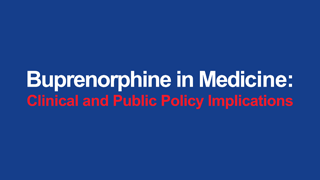Medicolegal rounds: Medicolegal issues and alleged breaches of standards of medical care in a patient motor vehicle accident allegedly related to chronic opioid analgesic therapy
DOI:
https://doi.org/10.5055/jom.2007.0034Keywords:
chronic pain, intractable pain, opioids, chronic opioid analgesic therapy, driving, motor vehicle accidents, standards of medical care, informed consent, breaches of standards, methadoneAbstract
The objective of this medicolegal case report is to present the details of the case of a chronic pain patient (CPP) who was placed on chronic opioid analgesic therapy (COAT) and was involved in a motor vehicle accident, alleged in litigation to be related to COAT. COAT standards are in a process of evolution, and this process is influenced by recent literature developments. We aim to present both the plaintiff's and defendant's expert witnesses' opinions on whether the defendant physician fell below the "standard" in allowing the CPP to drive. Both the methadone and the driving literature are utilized to explain the defendant's and plaintiff's experts' opinions and the differences between them. Based on these opinions, we have attempted to develop some recommendations on how pain physicians should approach the problem of deciding whether patients should be allowed to drive when on COAT.References
Fishbain DA: Chronic pain and addiction. In Boswell MV, Cole BE (eds.): Weiner's Pain Management: A Practical Guide for Clinicians, 7th edition. Boca Raton, FL: American Academy of Pain Management, CRC Taylor & Francis Press, 2006, pp. 117-139.
Portenoy RK, Foley K: Chronic use of opioid analgesics in non-malignant pain: Report of 38 cases. Pain. 1986; 25(2): 171-186.
Portenoy R: Opioid therapy in the management of chronic back pain. In Tollison CD (ed.): Interdisciplinary Rehabilitation of Low Back Pain. Baltimore: Williams & Wilkins, 1989, pp. 137-157.
Eisenberg E, McNicol ED, Carr DB: Efficacy and safety of opioid agonists in treatment of neuropathic pain of nonmalignant origin: Systematic review and meta-analysis of randomized controlled trials. jAMA. 2005; 293(24): 3043-3052.
Furlan AD, Sandoval JA, Mailis-Gagnon A, et al.: Opioids for chronic noncancer pain: A meta-analysis of effectiveness and side effects. CMAj. 2006; 174(11): 1589-1594.
Devulder J, Richarz U, Nataraja SH: Impact of long-term use of opioids on quality of life in patients with chronic, nonmalignant pain. Curr Med Res Opin. 2005; 21(10): 1555-1568.
Bendtsen P, Hensing G, Ebeling C, et al.: What are the qualities of dilemmas experienced when prescribing opioids in general practice? Pain. 1999; 82(1): 89-96.
Weinstein SM, Lang LF, Thornby JI, et al.: Physicians' attitudes toward pain and the use of opioid analgesics: Results of a survey from the Texas Cancer Pain Initiative. Southern Med j. 2000; 93(5): 479-487.
Federation of State Medical Boards of the United States, Inc.: Model guidelines for the use of controlled substances for the treatment of pain. S D j Med. 1999; 52(1): 25-27.
Fishbain DA: Medico-legal rounds: Medico-legal issues and breaches of "standards of medical care" in opioid tapering for alleged opioid addiction. Pain Med. 2002; 3(2): 135-142.
Fishbain DA, Cutler RB, Cole B, et al.: Medico-legal rounds: Medico-legal issues and alleged breaches of "standards of medical care" in opioid rotation to methadone: A case report. Pain Med. 2003; 4(2): 195-201.
Fishbain DA, Cutler RB, Rosomoff HL, et al.: Can patients taking opioids drive safely? A structured evidence-based review. j Pain Palliat Care Pharmacother. 2002; 16(1): 9-28.
Fishbain DA, Cutler RB, Rosomoff HL, et al.: Are opioid-dependent/tolerant patients impaired in driving-related skills? A structured evidence-based review. j Pain Symptom Manage. 2003; 25(6): 1-19.
Bruera E, Sweeney MC: Methadone use in cancer patients with pain: A review. j Palliat Med. 2002; 5(1): 127-138.
Grant JE: When mixing drugs makes malpractice. Current Psychiatry. 2006; 5(4): 52-54.
Rich BA: Medico-legal commentary. Pain Med. 2003; 4(2): 202-205.
Downloads
Published
How to Cite
Issue
Section
License
Copyright 2005-2025, Weston Medical Publishing, LLC and Journal of Opioid Management. All Rights Reserved.










